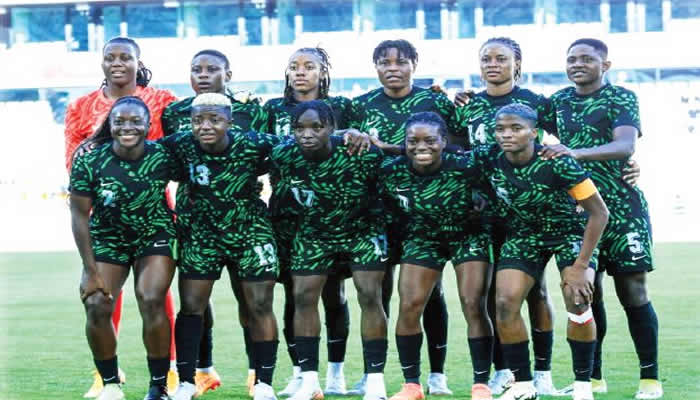The June 12th, 2025, FIFA Women’s World Ranking solidified Nigeria’s dominance in African women’s football, maintaining their position as the continent’s top-ranked team. Despite playing only two international matches since the last ranking update in March – a win and a draw against Cameroon – the Super Falcons saw a slight points increase, reaching 1623.29, firmly securing their 36th spot globally. This consistent performance underscores Nigeria’s enduring strength in women’s football and their status as nine-time African champions.
While Nigeria held steady at the top, other African nations experienced fluctuations in the rankings. South Africa, despite an impressive four-match winning streak, dropped slightly in points and global ranking, settling in 54th place. Morocco, fresh off their strong showing at the 2023 FIFA Women’s World Cup, experienced a more substantial drop, falling eight places to 60th globally. This shift highlights the competitive landscape of women’s football, where even consistent wins do not guarantee upward mobility in the rankings.
Cameroon, despite a loss to Nigeria in their only recent international match, emerged as one of the continent’s biggest climbers, moving up two spots to 64th globally. This improvement demonstrates that even in defeat, valuable ranking points can be gained, reflecting the complexities of the FIFA ranking system. Zambia, a rising force in African women’s football, experienced a slight dip in the rankings, reflecting their recent mixed results. Ghana and Côte d’Ivoire maintained their positions, showcasing consistency despite also facing varied outcomes in their recent matches.
Further down the African rankings, stability was the theme, with Mali, Senegal, and Algeria all holding their positions despite draws in their recent fixtures. This stagnation highlights the importance of victories in climbing the rankings, particularly for teams outside the top tier. The relatively static positions of these teams underscore the challenge of breaking into the upper echelons of African women’s football.
On the global stage, the United States retained their top spot despite a recent loss to Brazil, demonstrating the weight carried by historical performance in the ranking system. Spain and Germany remained close contenders, highlighting the competitive global landscape. Brazil’s resurgence, punctuated by their victory over the US, propelled them into fourth place, showcasing the impact of significant wins on ranking movement. Egypt emerged as Africa’s biggest climber globally, jumping seven places, emphasizing the potential for rapid progress in the rankings with strong performances.
The upcoming FIFA Women’s World Ranking update, scheduled for August 7th, 2025, will provide further insight into the evolving dynamics of women’s football, particularly following the 2024 Women’s Africa Cup of Nations. This tournament will undoubtedly influence the rankings of participating African teams, potentially reshaping the continental hierarchy. The men’s ranking update, scheduled for July 10th, 2025, will similarly reflect the latest international results, providing a comprehensive snapshot of the global football landscape. These updates serve as crucial benchmarks for tracking the progress and performance of national teams across the globe, contributing to the ongoing narrative of international football competition.


